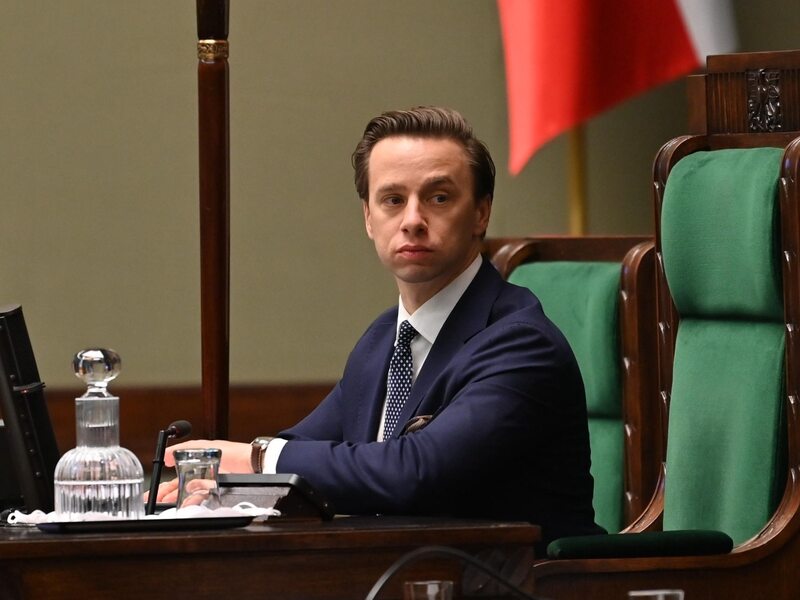
DoRzeczy.pl: Two major newspapers simultaneously published similar articles about the need to join the Eurozone. Can we expect pressure on Poland in this matter in the near future?
Krzysztof Bosak: Maybe even. This will be the logical result of the option of Brussels in the Polish government. However, I do not see a quick way to join the Eurozone, Poland does not meet the convergence criteria. Of course, some steps can be taken, such as reassigning representatives for training and trying to educate the public about the topic. I interpret these articles. It is about clearing the land, preparing the community. There is no social acceptance in Poland, and joining the Eurozone requires changing the constitution.
What did joining the Eurozone mean for Poland's economy?
Forecasting the economic reality with such significant changes as entering the Economic and Monetary Union is very difficult. First of all, this means reducing economic sovereignty and depriving the Polish state of many tools to pursue its own economic policy. It is a tie of hands on a number of issues.
Getting rid of one's own currency means giving up one's own exchange rate policy, giving up the ability to direct interest rate policy and thereby control the supply and price of credit in the economy. Then, it means giving up the independence in the area of budgetary policy, which I partially gave up in the EU when you joined it. So far, these are soft commitments, but upon entering the Eurozone, the national central bank becomes part of the Eurosystem of central banks, which translates into the state's budgetary policy and reduces its autonomy. The ability to independently supervise the entire financial market is lost.
Entry into the Eurozone implies the introduction of appropriate financial supervision for individual sectors of the financial market, such as the capital market, banking market, insurance market and pension fund market. All these major sectors of the financial market are subject to the relevant supervision, with headquarters in Brussels, Paris and Frankfurt. The state can no longer manage economic policy through supervisory instruments such as the Polish Financial Supervisory Authority; It will only be the executive body of the EU institutions.
What about the arguments of the supporters of joining the Eurozone?
I believe that in the 21st century, where finance is the lifeblood of the modern economy and the way of economic life, to reject these tools is political and economic suicide. On the other hand, supporters of joining the Eurozone put the reduction of the risk of the exchange rate on the table, but it should be noted that it only decreases in the European direction, it remains in the other direction. The modern financial market has developed tools with which enterprises can reduce exchange rate risk and protect themselves from it. There is also the last issue, ie the cost of access to credit, which is a problem for the Polish economy, is high. In my opinion, these two possible gains are not worth all these costs. Moreover, it should be emphasized that currently joining the Eurozone is an irreversible process, as the countries of the South experienced during the Eurozone crisis.
Also read:
Vesik: If they want to put us in prison, we will be political prisonersAlso read:
Prof. Grosse: The German public is disillusioned with the government
(tags translated) krzysztof bosak
